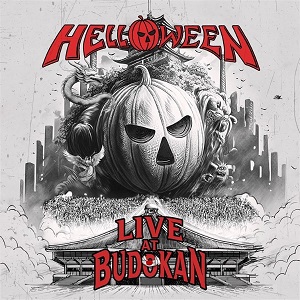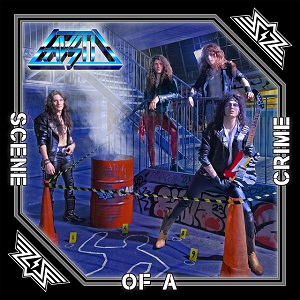IAN GILLAN To Work With TONY IOMMI Early Next Year - "I’ve Got Some Free Dates Next April And We Are Planning To Get Together For A Week And See What Happens"
July 31, 2011, 13 years ago
By Robert Gray
On December 7th, 1988, an earthquake hit the Spitak region of Armenia registering 6.9 on the Richter Scale. The response from the rock sphere would be Rock Aid Armenia, who – amongst other things – re-recorded DEEP PURPLE’s ‘Smoke On The Water’ with an all-star cast, including Deep Purple frontman Ian Gillan as well as BLACK SABBATH guitarist Tony Iommi.
“I suppose it all started about 20 years ago when I was touring the Soviet Union with my band – I remember the tour quite well,” confirms Ian, discussing the WhoCares project. “It was the second tour in fact of the Soviet Union; we took in Moscow, St. Petersburg, we went through the Ukraine and Georgia, through the Caucasus Mountains, Grozny, Chechnya, and ended up in Makhachkala in Dagestan. We then went down to Armenia and did three shows there at the Sports Arena in Yerevan, and I remember flying in actually. I was pretty sick at the time. We flew in over Mount Ararat and I was looking for Noah’s ark on top of this mountain (laughs), and during our time there I went down to Spitak which was the epicentre of the earthquake. It had happened a year before, and people were still wandering around in a daze. Not much was known about it. You get an earthquake now in Haiti or a tsunami or whatever and it’s on TV all over the world within seconds, but not then. I remember visiting Spitak as I said and I was being shown around by the man, and amongst all the other images that prompted me to write a song called ‘Pictures Of Hell’ (from 1991’s Toolbox) he told me that there was no music at all, that there hadn’t been any music for a year. No music on the radio, no music in the churches and even the birds weren’t singing. I said ‘Well, maybe when you’re ready we can do something about that’.”
On October 6th, 2009, Ian and Tony visited music school N6 in Gyumri as Ian recalls. “I did a charity album called Rock Aid Armenia the following year, but it was only really on this recent visit when I went to receive a Medal Of Honour from the President of Armenia and went to visit Gyumri which was near to the epicentre and I saw this school. It was a project they started but they had ran out of money – they barely got started – and it was symbolic because everyone had remembered that quotation from 20 years ago when I said ‘When you’re ready for the music again, maybe we can do something’. We thought a music school was something very worthwhile; it would be very pointed, and we would know exactly where the money was going and exactly how it was being spent, and it was an achievable target. We got to about $750,000 which doesn’t sound much for a school, but it goes a long way in Armenia. Flying home from there with Tony Iommi and a couple of other guys, I was actually on the toilet on the plane and I was writing a song in my head which prompted me to wonder ‘Why the hell do they keep telling us you can’t smoke on aeroplanes?’ As if we don’t know. We set up this thing – a band called WhoCares – and wrote a song. We went to Tony’s house and Bob’s your uncle. That’s how it started.”
The result would be ‘Out Of My Mind’, featuring; Ian, Tony, bassist Jason Newsted (ex-METALLICA, ex-FLOTSAM AND JETSAM, ex-VOIVOD), drummer Nicko McBrain (IRON MAIDEN), keyboardist Jon Lord (ex-Deep Purple) and guitarist Mikko Lindström (HIM). “We came up with two or three ideas, and that was the one that we chose, that we developed, into a complete song,” Ian explains. “I went back a little while later, finished doing the vocals. Tony added some guitar and decided we needed some drums and keyboards and bass etcetera on it, so we made a few phone calls and got some mates to play on it as well. I then thought one song isn’t really enough, so I had another song that I had finished writing for another project called ‘Holy Water’. I thought that would be suitable, and asked Tony if he’d play on that as well to give it some kind of continuity sound-wise.”
B-side ‘Holy Water’ also features Ian and Tony, but backing them up are guitarists Steve Morris and Michael Lee Jackson, drummer Randy Clarke, bassist Rodney Appleby, organist Jesse O’Brien, Arshak Sahakyan playing a duduk solo and Ara Gevorgyan playing a duduk intro. Eagle-eyed readers will note several alumni from Ian’s solo work. “Rodney’s been on tour with me and Michael has and so on, yeah, but it’s not a permanent band – it’s not a line-up,” clarifies Ian. “They’re the first guys I phone if I’m doing something on my own, particularly in the States.”
Speaking of your solo work Ian, do you have plans to follow up March 2009’s One Eye To Morocco? “Well, yes,” the singer replies. “I’ve got about 25 to 30 songs in various stages of completion, and I was in fact starting what I call ‘the singles project’; I was going to release about four to five EPs each with three to four songs on, and at the end of it put them all together for an album, kind of like the old-fashioned way. I put that on hold because Purple’s due to make another record though and I’m prioritising that, and the WhoCares thing was just being finalised. I borrowed one of the songs from my project ‘Holy Water’ to put into that. I think I’m ready and good to go actually with that project, but it’s just on hold for business reasons. It’s all the same label, and you can’t get the guys working on three projects at the same time from the same source – it doesn’t make any sense at all. It’s at the bottom of the pecking order, let’s put it that way.”
Do these songs have a similar sound to One Eye To Morocco? “No. I think we’ve gone with a completely different approach this time, quite different. They’re quite funky and bluesy.”
November 2005’s Rapture Of The Deep was the last full-length studio offering from Deep Purple, with plans for a 19th studio affair imminent. How are plans for Deep Purple’s 19th studio album going Ian? “Useless – it’s typical Purple. We never make plans, and that’s the trouble. We never have made plans. When we get some time off – which we don’t have – someone says ‘Let’s write some songs, some new stuff’, which we do, but then it gets forgotten until the following year (laughs) and then another year goes by. We never write songs prior to a session. A Deep Purple songwriting session involves everyone turning up, going in the kitchen, putting the kettle on, talking about ‘Is that dog still alive?’, ‘How’s your family?’, ‘Did you buy that car?’, and talking about various football teams. We then go into the studio and work as if we’re going into the office every day, working from noon until six o’clock every day, and then go out and have a bite to eat. The songs evolve through those jam sessions, and we’re not really that far into the process. We did have a week in Spain in February I think it was, and a couple of things started to germinate which we’ve got on tape somewhere. Not literally on tape – it’s just an expression.”
Are these tentative ideas promising? “It’s hard to say really, because they’re not developed yet. I don’t even know why I’m talking about it – I’m just trying to answer your question as best as I can. We’ve not got any free time until next March at the moment, so I don’t see anything immediately on the horizon. We’re just having such a good time on the road.”
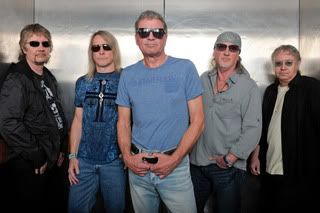
How do you view making albums with Deep Purple nowadays? In an interview with the QMI Agency, Roger Glover said “there’s been disagreement in the band about whether to do another album. They really don’t make money any more.” “I don’t know anything about that,” Ian reflects. “I don’t much about the business or ‘the industry’ as it calls itself these days – it’s in turmoil really. I know what Roger’s talking about, because I remember clearly when digital music arrived with a bang in 1982 and everyone started producing CDs. Everything did change and there was remarkable movement for embracing this whole thing from all the creative people in the industry. Not just the musicians, but the engineers, the producers, the management, agents, promoters, designers – anyone you can think of. They were all excited about this digital movement – this digital thing that had just arrived – and how they could exploit it and embrace it. That’s all except the lawyers and the accountants who for some reason seemed scared of it, and so they kept it at arm’s length. They all developed different ways of dealing with it, and consequently you had a fragmentation within the music business with all the record labels particularly. You ended up with the Napster syndrome, the Napster paradox if you like, and compare that with what happened in book publishing for example. In book publishing all the publishers and their accountants and their lawyers got together and formalised the arrangements so that every book got a digital number and a library number, and they agreed that they would negotiate jointly with new companies set up to exploit books in the early days and right through to the Kindle stuff that you’ve got right now with Amazon and everything else. That just worked like a dream, like a dream. That’s because they weren’t greedy, not quite so anyway.
“The music business just screwed itself, shot itself in the foot and all over really. So yes, I understand that. It’s hard to imagine – and as you’re part of a generation that was born into it – exactly what you’re gonna do with a project once you’ve finished it. I mean, I don’t have a problem with that personally at all. It seems that everything has its own medium to carry it, like the airwaves. You make the music, and it’s not your job to sell it other than with regard to promotion, so you do that. Then again I’ve never seen records that way though, not for Deep Purple anyway. We’ve never, ever understood the commercial side of it. We made records to provide us with material to perform onstage because we’re like that, and we needed material. We didn’t do covers – well, we didn’t when Roger and I joined anyway. We certainly didn’t wanna do covers and we had plenty of songwriting ability within the band, so that was the purpose of writing songs. At the moment, we’ve got such a plethora of material and so many different ways of performing it. We’ve played in 48 countries in the last year and it’s probably gonna be the same next year, so it’s just a bottomless pit of material. Considering the fact that every night it gets dangerous up there with the improvisation, there’s no great pressure within the band to sit down and write at the moment.”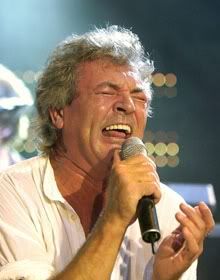
Dubbed A Night With Deep Purple And The Songs That Built Rock, the quintet were backed by a 30-piece orchestra on a tour of North America in June. How well did Deep Purple’s material transferring to a symphony orchestra? “I think if you understand it, it’s alright,” the vocalist informs. “It’s very hard to explain, but I’ll do my best. First of all, when we started working with orchestras in ’69 it was using Jon Lord’s concerto for Concerto For Group And Orchestra as a vehicle. That was written really about the two components, which was the band and the orchestra. That started with three movements; with the first movement two giants circled each other and went into battle, and then there was pause for breath and a mutual respect in the second movement, and then joining together in unison and harmony in the third movement. A lot of the Deep Purple songs lend themselves very well to jazz arrangements and to orchestral arrangements; there have been many jazz bands who’ve recorded albums of Deep Purple material – the Moscow State Orchestra did an album of Purple material. I think that’s because of the disparate nature of the musicians in the early days; Jon Lord particularly obviously coming from that background, Ian Paice having grown up as an aficionado of Buddy Rich and all big bands – big band swing was his thing, Ritchie (Blackmore) being a rock ’n’ roll studio musician, Roger Glover being all things folk, and my background in blues and rock ’n’ roll. I think that was one element of working with orchestras with especially written stuff that came naturally to us, and then you get the other kind of thing where the orchestra is just really working in a symphonic way as a fusion experiment, trying to work with the band or supporting them. It kind of works, but it’s hit and miss. I’ve had some fantastic shows with orchestras and also some terrible ones.
“It’s really difficult putting it together and it’s a question of attitude as well, but then there’s what we did. I did a tour last January with a special show called Rock Meets Classic, working with Lou Gramm and a few other singers, where the orchestra was embellishing. It was augmenting the band, and what we’re doing with Purple now is going one step further. It’s not symphonic at all; it’s more like the Count Basie Orchestra. It really is big band swing, and it works absolutely brilliantly and consistently. We had a different orchestra every night, so they just read the dots and we learned how to work with them and get the best out of them. They didn’t play on every song, and the impact when they did play was fantastic. The horn section and some of the soul stuff we do... There was a lot of soul and funk in the early days of Purple, and more recently too. It was like a brass section and horns, absolutely fantastic. It’s a varying experiment; sometimes it works, and on this occasion it worked brilliantly. That’s all I can say about it really. I prefer the purist approach; I prefer just working with the band because we get much more freedom. The same setlist can vary by as much as 30 minutes each night because of the jamming, but we didn’t quite have that freedom with the orchestra because they read their parts, so it has to be consistent.”Other than the inability to jam, is it still a rock show Ian? “Oh yes, absolutely. As I say, it developed because the orchestra wasn’t in every song. We do get the opportunity to break out in a few sections, and it was the same material too – we didn’t compromise with the material. It was very much a similar setlist to the one we’ve been using around the world really. I think particularly in America, they sit down and they wanna hear what they know. It’s working well for them. You’ve gotta give people what they want most of the time.”
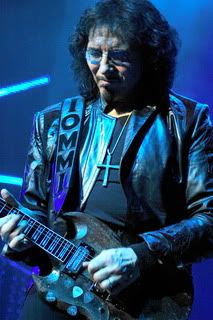
Are there plans for you to work with Tony Iommi again? “I haven’t got plans for anything really apart from what’s in the itinerary, upcoming tours and stuff like that. We are very keen to do more, but no plans. I’ve got some free dates next April and I think we’re planning to get together for a week and see what happens. Whether we’ll have enough time to make an album, I don’t know. That’s the plan, and certainly working with Tony is very quick because he’s unique. When I hear his ideas, I know exactly where the song’s going and consequently there’s none of that faffing around that normally stems the writing process. I can’t be doing that these days; if a song’s not clearly got its identity after about 20 minutes, then it’s time to tear it up and start on something else. It’s always been that way with Tony though; you know where the songs are going, and consequently these images come into mind. Of course it’s short-form writing; you have to paint pictures with words most of the time, using metaphors, figures of speech and that sort of thing. You give an image, all part of what we learned when we were kids really. ‘What does it remind you of? What does the music sound like? What’s the image? What comes into mind?’ Once you’ve got your topic and you know what the song’s about, the writing doesn’t take long at all.”
If an album was to be recorded between you and Tony, would it be possibly be part of a project called Born Again (after the 1983 album of the same name Ian recorded with Black Sabbath)? A bit like the Heaven & Hell project with the late Ronnie James Dio? “No, no. That was an album followed by a tour. That was a project that we knew was gonna last at least a year; it was in fact a year and was the longest party I’ve ever been to, but that was with a project in mind with a world tour in mind and a band of course. Working with Tony is just me and him though. Who we will have on the other instruments I don’t know. That probably wouldn’t be discussed until we’ve written some songs, and certainly I wouldn’t have time for a tour because Deep Purple’s always working and there’ll be no point in trying to rehearse a band up for one or two shows. That wouldn’t come into the picture I don’t think.”
If the only commitment was recording an album, would you be open to the Born Again line-up reuniting for an album? “No, I don’t see that happening at all. I can’t see that, no. That’s not even come into my mind or his mind I don’t think.”
‘Out Of My Mind’ was released in Europe on May 6th, 2011 through earMUSIC, and subsequently on June 27th in North America via Eagle Rock Entertainment.


